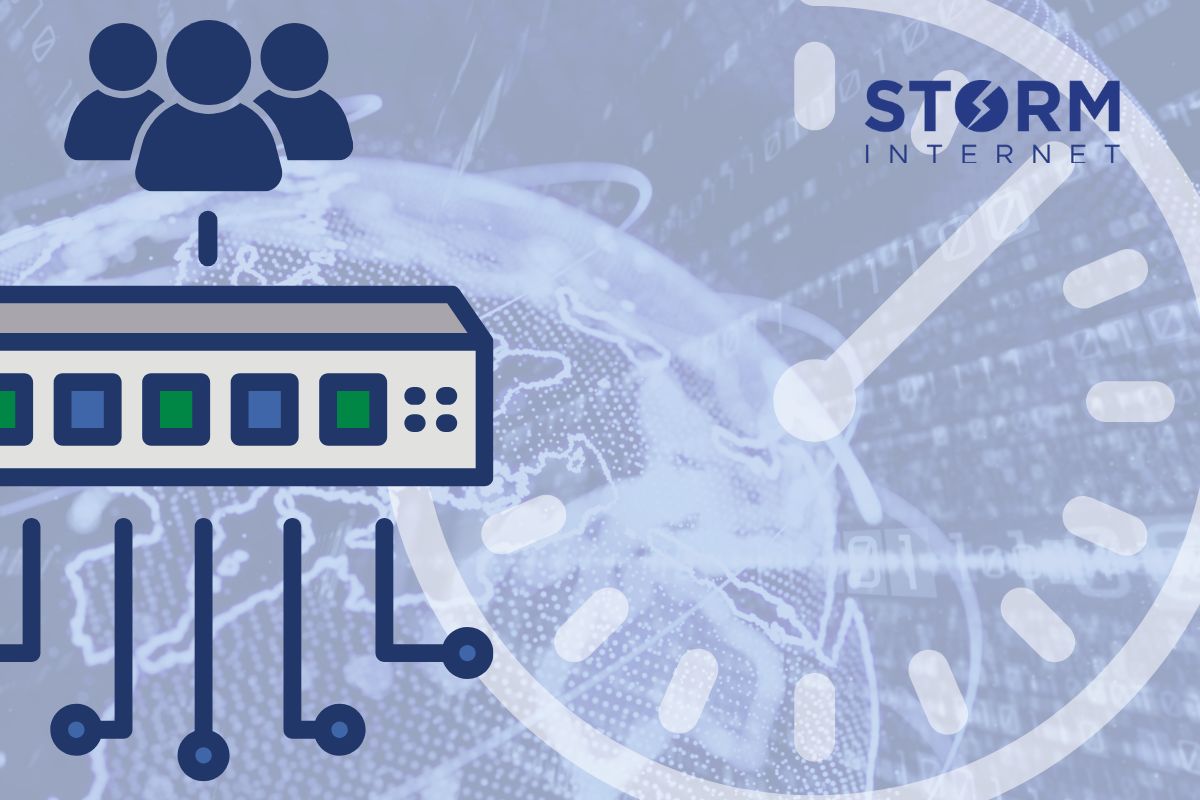Uncategorised
7 Secrets of Hosting That Your Current Hosting Provider Won’t Tell You

Think your current hosting provider is giving you the full picture? Think again.
In the race to win customers, many hosting companies use flashy pricing, exaggerated claims, and vague “unlimited” offers to lure you in – only to disappoint you later when your site’s performance lags, your costs creep up, or your support tickets go unanswered.
This post pulls back the curtain on some of the most common industry secrets. Whether you’re a small business owner, agency, or developer, understanding these truths will help you make better hosting decisions and avoid costly mistakes.
- Hidden Costs Lurk Everywhere
The low price you saw on the homepage? It’s often just a hook.
Many hosting providers advertise entry-level rates that seem too good to be true. Those attractive prices typically apply only to the first billing cycle (e.g., the first year) and then double or triple on renewal. Meanwhile, basic features you expected to be included – like SSL certificates, automated backups, or malware scanning – may only be available as add-ons that quickly inflate your monthly bill.
Common Hidden Hosting Costs:
- Renewal price increases: After the promo period, rates often jump dramatically.
- Essential feature fees: Need backups, restore points, or firewall protection? That’ll cost extra.
- Migration charges: Moving to or from a host can incur hidden transfer fees.
- Premium support fees: Some hosts offer “priority” support at a price – because their standard support is slow or unhelpful.
- Backup and restore fees: You might pay not just for storage but also for each restore action.
- Scalability charges: If your site grows, expect to upgrade plans or purchase more resources.
The Fix:
Read the fine print and pricing tables. Ask questions before signing up. And always budget for what you’ll actually use – not just what the cheapest plan advertises.
2. “Unlimited” Hosting Isn’t Really Unlimited
If your host offers “unlimited websites, storage, and bandwidth,” it might sound like a dream come true – but the reality is far more constrained.
Here’s what “unlimited” really means:
- Resource caps exist: You’re limited by CPU cycles, memory, inodes (number of files), and concurrent processes. If you exceed them, your site can be throttled or suspended.
- Fair use policies apply: Providers monitor for “excessive use” and will flag you if your traffic or storage affects other users.
- Large file restrictions: Hosting videos, ZIP files, or backups is often prohibited or limited, even if space is “unlimited.”
In short, “unlimited” plans work fine for small, low-traffic websites – but as your site grows or becomes more dynamic, you’ll likely hit invisible ceilings.
The fix:
Think of “unlimited” as “unmetered within reason.” Review acceptable use policies carefully, and if your site is growing fast, consider VPS or cloud hosting.
3. Oversold Servers = Poor Performance
Shared hosting is cheap because it’s crowded.
Your site doesn’t live on a private server – it shares space with dozens or even hundreds of others. That means your site is directly affected by the behavior of your “neighbors.” If another site hogs resources or gets attacked, your performance suffers too.
Key Performance Risks on Shared Servers:
- Slow load times: Heavy usage by other sites reduces available CPU and RAM for your site.
- Downtime: Overloaded servers are more prone to outages during traffic spikes.
- Security risks: Malware infections or vulnerabilities in other accounts can spill over and affect your site.
- Noisy neighbors: High-traffic or misconfigured sites on the same server can degrade performance for everyone.
The Fix:
Shared hosting may be okay for hobby sites or local blogs, but for business-critical websites, consider premium shared, VPS, or managed cloud hosting where resources are better managed and isolated.
4. Support Is Often Poor or Limited
When something goes wrong, how fast can you get help?
The truth is, many budget hosting providers cut corners on support. They rely on automated responses, slow ticket systems, or outsourced help desks that only handle basic server-level issues.
Common Support Shortcomings:
- Limited access channels: Many hosts offer support only via email or tickets – no chat, no phone.
- Scripted responses: Tier 1 agents often work off scripts and can’t help with anything outside predefined scenarios.
- Low priority for shared hosting users: If you’re on a basic plan, your issues may be deprioritised in favor of higher-paying customers.
- No app-level help: Issues with WordPress, email configuration, or third-party software are often “outside the scope of support.”
The Fix:
Ask your host what kind of support is included in your plan – and how long it usually takes to resolve issues. Look for reviews specifically mentioning support responsiveness.
5. Cheapest Isn’t Best – Reliability Might Cost More
Everyone wants a good deal. But in hosting, going too cheap can hurt you when it matters most.
Lower-cost hosting often sacrifices reliability, backup frequency, and infrastructure redundancy. When disaster strikes – like a hack, hardware failure, or accidental deletion – you may find yourself with no working backup and no help.
What Cheap Hosting Often Leaves Out:
- No guaranteed backups: Some providers don’t back up your site unless you pay extra.
- No disaster recovery plan: If the server goes down or gets corrupted, recovery may not be possible, or it may take days.
- Lower uptime and SLA: Cheap providers may not commit to the same 99.9% uptime guarantees that premium hosts offer.
- Limited scalability: You may be locked into a plan that can’t handle growth or sudden traffic surges.
The Fix:
Understand what’s included in your plan – especially when it comes to backups, restores, and disaster recovery. Pay more if it means sleeping better.
6. Shared IP Reputation Can Hurt Your Site
If you’re on a shared hosting plan, you’re almost certainly sharing your IP address with other websites – sometimes hundreds.
This might not seem like a big deal, but your site’s reputation can be affected by others using the same IP.
Risks of shared IP reputation:
- Email deliverability issues: If another site on your IP sends spam, the IP can get blacklisted – affecting your email sending ability.
- Blacklisting: Spam databases don’t care which site is responsible; they block the whole IP.
- Indirect SEO effects: While Google doesn’t penalise for shared IPs alone, being grouped with spammy or compromised sites can hurt your domain’s trustworthiness.
- Security fallout: Malware on a neighboring site might trigger security warnings or cause your host to lock down the server.
The Fix:
If email deliverability is critical to your business, ask for a dedicated IP or consider a higher-tier plan. For sensitive or regulated industries, avoid shared hosting altogether.
7. Promised Features May Change Without Notice
That “lifetime” SSL certificate or free backup plan? Don’t get too comfortable.
Hosting companies reserve the right to change the terms of your service at any time. What’s included in your plan today might not be there tomorrow.
What Can Change:
- Usage limits: Providers may lower CPU or storage thresholds over time.
- Free features become paid add-ons: What started free (like malware scanning or backups) may be removed or reclassified as a premium feature.
- Terms and Conditions: Often written vaguely, allowing hosts to alter what’s “reasonable use” or to cancel features entirely.
Bonus: Many “best hosting” lists online are driven by affiliate revenue, not genuine performance or customer experience. Don’t blindly trust “Top 10” lists without digging into real user reviews.
The Fix:
Regularly review your hosting terms and included features. If your provider starts pulling back on value, it may be time to switch.
Final Thoughts: Knowledge Is Your Real Hosting Power
Hosting is full of traps, but they’re avoidable if you know what to look for.
Here’s how to protect yourself:
- Read everything carefully: Especially renewal rates, usage policies, and support terms.
- Ask direct questions: What’s included, what’s not, and what happens when you grow?
- Factor in real-world needs: Backups, uptime, support, scalability, and security are not optional—they’re essential.
And perhaps most importantly…
Don’t settle for “cheap” hosting that ends up costing you more in downtime, stress, and lost business. If your site matters, invest in hosting that matches its value.
For information on Storm’s services, and how we can help you get the most from your hosting, visit our Managed Hosting page or contact us with your specific needs.
Speak with a Storm Expert
Please leave us your details and we'll be in touch shortly
A Trusted Partner








